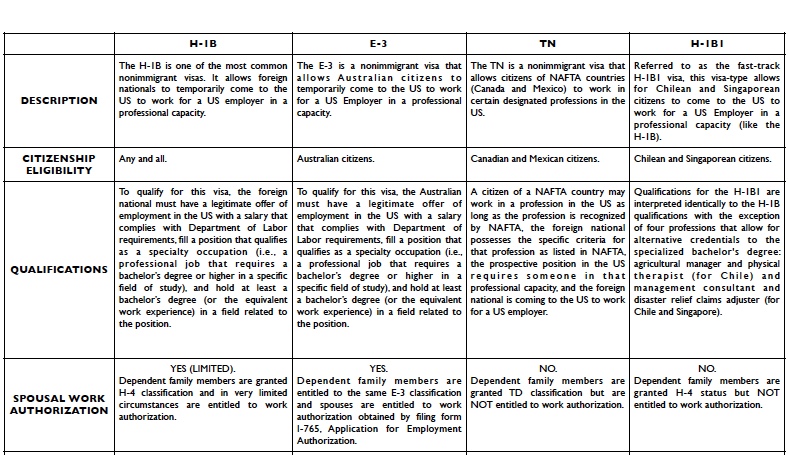Small businesses that rely on specialized talent have long turned to the H-1B visa as the primary route to hire foreign professionals. The new requirement that employers pay a $100,000 fee for many H-1B cases filed after September 21, 2025 has changed that calculation. For large corporations, this new cost may be absorbable but for startups, boutique firms, local clinics, research labs, engineering shops, technology innovators, and other small employers, the fee can make the H-1B category functionally unavailable. Many employers who would ordinarily pursue H-1B sponsorship are now searching for realistic alternatives. This shift does not eliminate the possibility of hiring foreign talent. It does require creative, early planning to determine whether another visa classification aligns with the company’s needs and the candidate’s background. The goal is to match the role, the qualifications, and the business structure to a category that supports employment without triggering the $100,000 H-1B entry fee.
Read moreNithya Swaminathan: The DLG-Proust-Actors Studio Questionnaire
Nithya moved to the United States on a whim. While attending high school in Singapore, the day before she had to send her list of the colleges where she planned to apply to her counselor, she had one space left. She Googled “liberal arts colleges” and Swarthmore came up. “I didn’t do any research,” she says. “I just put it down—I hadn’t visited—and it was the first school I got into.” To be fair, after she was accepted, she did do a little more research, but she showed up on campus ready to start having never visited. But the decision paid off. “I loved it,” she says. “Swarthmore is really great, such a great experience. I mean, it was really stressful as well. But now when I look back, all I had to do was read books and write about books. Why did I complain about that?”
Read moreSupertrees
I am on my way to Australia to see Roger, and I made a short stop in Singapore, where I visited the incredible Gardens by the Bay, a high-tech "horticultural mega project" featuring 160-feet-high solar-powered supertrees and climate-controlled biomes. The three waterfront gardens are built on reclaimed land, and the Bay South Garden alone is said to have cost more than $720 million. The highlight of the gardens, at least for me, are the so-called supertrees, which are essentially vertical gardens with bromeliads, ferns, and tropical flowering climbers. Two of the trees are connected via a cool aerial walkway, and some trees have photovoltaic cells on their canopies which light up at night, while others act as air exhaust receptacles. The supertrees are meant to "mimic the ecological functions of real trees through their environmentally sustainable features."
Year of the Goat
Despite some debate over exactly what kind of animal is associated with this lunar new year, reliable reports suggest that 2015 will be "a memorable year in terms of important, impactful events." Also important to know: the overall theme for the year is "'creativity and diligence resulting in prosperity.'"
Oh to be Australian, Canadian, Mexican, Chilean, or Singaporean
The H-1B is one of the most common visa categories that foreign nationals utilize to come to the United States to work for a US employer in a professional position. The H-1B, however, is limited by Congress at an annual cap each year. Currently there are 65,000 H-1B visas available for those with a bachelor’s degree (or the equivalent) with an extra 20,000 set aside for those with a US master’s degree. Since it’s one of the most popular visa options, it is common for more people to apply than there are numbers available. This has resulted in an annual lottery of H-1B petitions. In previous years, the lottery pool has included petitions submitted on the first five business days the numbers become available (which is April 1st each year). Of course, this often means that unless a foreign national is one of the lucky people to “win” one of the allotted H-1B numbers, she/he must wait and submit a new H-1B petition when the next year’s numbers become available. There are, however, special exemptions to the cap number as well as H-1B-like visa options for certain foreign nationals, namely those whose country of citizenship is Australia, Canada, Mexico, Chile, or Singapore. I examine these exemptions and options in the chart below (click on chart to open in PDF):
Through all the differences between the various visa categories, one thing is certain: it is good to be from a country that allows you options should an H-1B number not be available. In fact, depending on the situation, these may be even better options than the H-1B.



